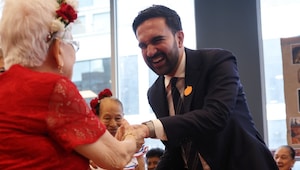Meet the Sunday boy, your favourite weekend ghost in disguise
He’s emotionally available…but only on the weekend.

For 29-year-old digital marketing professional Rhea and 30-year-old cinematographer Arjun, Sundays are sacred—not for religion, but for routine. “We both work insane hours,” Rhea says. “By Sunday, I don’t want to talk about quarterly reports or swipe on strangers. I just want good food, some laughs, and to feel something warm before Monday hits.”
The two met on Bumble eight months ago and quickly realised they both wanted a connection without the emotional admin that comes with dating. “We clicked instantly,” Arjun recalls. “But neither of us wanted the pressure. She was upfront about wanting connection without commitment, and I respected that.”
Now, almost every Sunday, they meet for brunch or a long walk by Carter Road. Sometimes a movie, sometimes just coffee and sea breeze. “It’s our little emotional timeout,” Rhea says. “No talk of next weekend, no promises of forever. Just that day—fully present.”
That, in essence, is the story of the “Sunday Boy”—the man who flirts with warmth, humour, and just enough emotional intelligence to keep you hooked. He replies thoughtfully, asks about your week, sends a playlist, but only between Saturday night and Sunday evening. Come Monday, he’s gone, swallowed by deadlines, group chats, and selective silence.
The Sunday boy isn’t a villain, just a symptom. As Kota-based relationship expert RJ Pawan explains, “He represents the paradox of modern romance, craving closeness but fearing commitment. Sunday becomes his emotional loophole, a space to feel seen without surrendering control.”
It’s a pattern tailored to the rhythm of modern loneliness. Sundays, that strange in-between of hangovers and to-do lists, make the ache of solitude louder. That’s when defences drop. You want something that feels like love but not love’s logistics.
And in the era of curated vulnerability, it’s easy to mistake effort for intimacy. A heart emoji, a voice note at 2 am, a reel shared “just because”—these small gestures mimic connection without ever demanding consistency.
Comfort in inconsistency
If you’ve ever waited for that “hey” that arrives exactly once a week, you’re not alone. Psychologists say it’s the same dopamine loop that keeps gamblers hooked—the unpredictability is the thrill. Clinical psychologist Mehezabin Dordi calls it intermittent reinforcement. “That weekend attention, followed by weekday silence, creates anticipation,” she says. “You start chasing the high of maybe—maybe this Sunday will mean something.”
Over time, that inconsistency starts to feel normal, even comforting. “We’ve become desensitised to ambiguity,” Dordi adds. “It’s no longer a red flag; it’s part of the game.”
Love as a soft rebellion
This isn’t apathy; it’s adaptation. The modern dater wants closeness that’s low-maintenance, flexible, and safely compartmentalised. Love, once about surrender, is now about balance—something you can pause, mute, and resume.
But the Sunday cycle comes with a price. “It’s emotional fast food: comforting but not nourishing,” says Pawan. “You feel full for a while, but empty by Monday.”
Dordi calls it love in instalments. “Moments of real connection interrupted by long stretches of self-protection,” she says. “We want the thrill of intimacy without its vulnerability. It’s not detachment, it’s exhaustion, wrapped in irony and aesthetic texts.”
Can we break the loop?
Pawan believes awareness is the first step. “If someone only shows up once a week, recognise that it’s not romance, it’s routine.”
But maybe that’s the quiet tragedy of modern love; we’ve learned to ration our feelings the same way we ration our time. To keep things casual enough not to hurt, but warm enough not to feel alone. Until then, he’ll keep texting every Sunday, just long enough to make you believe that maybe, next weekend, it’ll be different.
Lead image credit: Netflix
Also read: Great “text chemistry” is the new love language of Gen Z dating—but almost no one’s fluent in it
Also read: Are couples who meet offline happier than those who match on the apps?
more from Relationships

I’m choosing needy over nonchalance in relationships, and here’s why you should too

Great “text chemistry” is the new love language of Gen Z dating—but almost no one’s fluent in it

Are couples who meet offline happier than those who match on the apps?

A pocketful of love: Perhaps putting hands in each other’s back pockets is GenZ's way of returning to old-school love

Crossover couples are the internet’s new obsession—and here are 10 dream pairings we’d stan

Mandira Bedi: “Young women can now play cricket without apology or hesitation”

How Zohran Mamdani won the NYC mayoral election by keeping it real

Shafali Verma: “Everything starts with believing in yourself”

"Going phone-free for a week was harder than going sober for a year: 3 lessons I learnt the hard way"

Is 'bhajan clubbing' the coolest new way to party in India?
